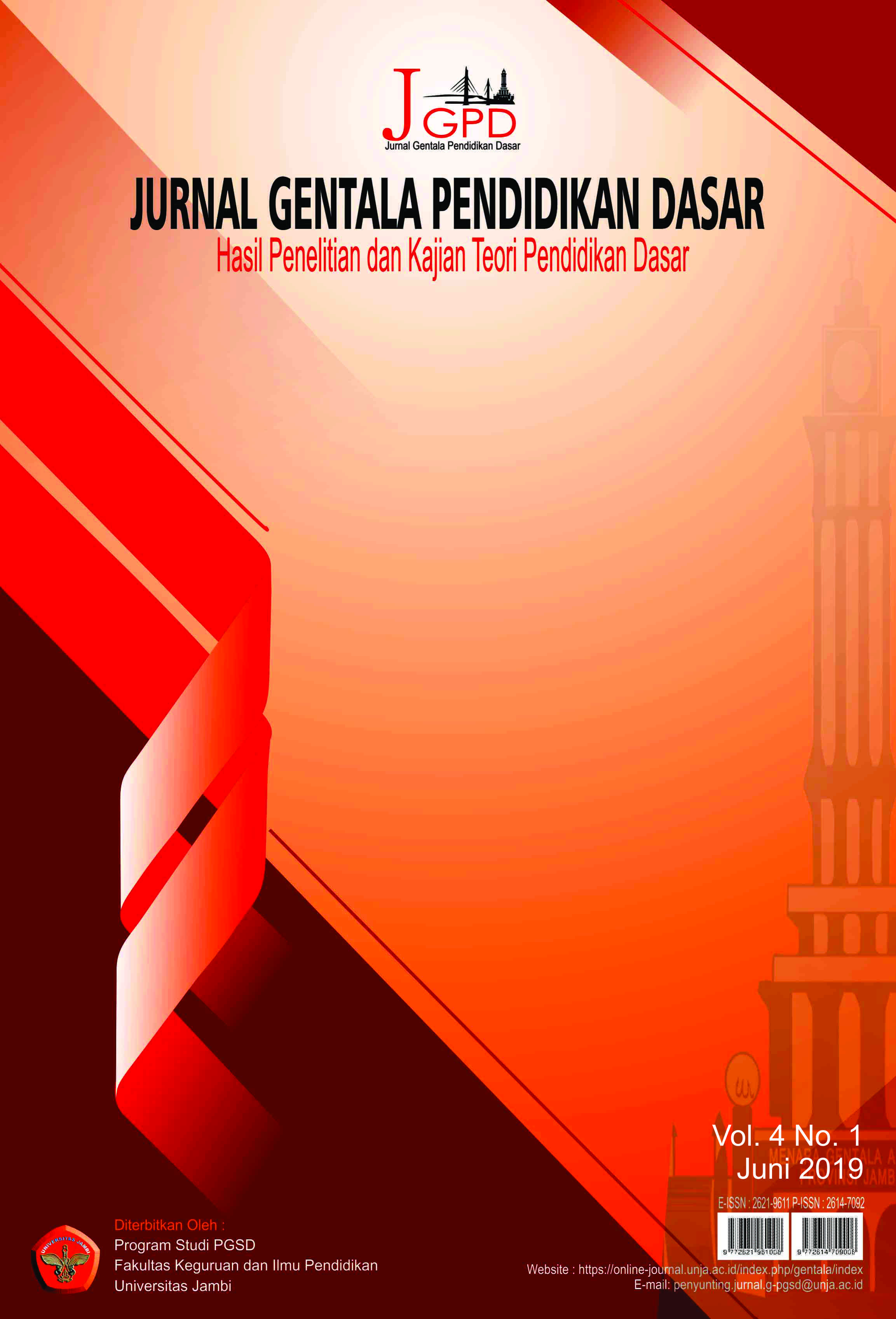Analisis Kesulitan Belajar Mahasiswa Pendidikan Guru Sekolah Dasar Pada Mata Kuliah Konsep Dasar Matematika Di Universitas Jambi
DOI:
https://doi.org/10.22437/gentala.v4i1.6851Abstract
Abstract. The purpose of this study is to find out the difficulties of any difficulties experienced by students and what factors influence it. The procedure of this study uses a qualitative approach, the place of research in Elementary School Teacher Education FKIP Jambi University. The study population was 261 students. The sample of this study 15% with random sampling technique. Data was taken through observation, tests, questionnaires and interviews. Data analysis is done by studying, arranging, synthesizing, looking for patterns and finding what is systematically meaningful. The results of the study only 20% of students reached KKM 75 / B + passed the test because: (1) students had difficulty understanding basic geometry concepts (2) students had difficulty in using the formula (3) routine students in understanding the connectedness of each build and 4 ) Difficult students solve questions that are mixed with application stories that require analysis. While the factors that influence it are (1) the basic ability of students to mathematics is still low (2) learning motivation is still low (3) low learning readiness (4) the availability of books / references that are minimal (5) lack of trying to solve complicated / reasoning questions . Conclusion of Research, that students have difficulty learning in geometry material, and the determining factor is the lack of readiness and seriousness of students in solving these difficulties.
Keywords: Analysis, Learning Difficulties, Basic Concepts of Mathematics
Downloads
Downloads
Published
Versions
- 2019-06-19 (1)
- 2019-06-19 (1)













